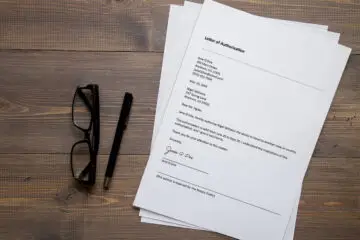A mobile notary visit offers convenience by bringing notarization services to your location. Whether you need documents authenticated at home, work, or another place, understanding the process ensures a smooth experience. Mobile notaries handle a range of documents, including real estate transactions, legal agreements, and affidavits. Knowing what to expect can help you prepare accordingly and avoid common issues.
Scheduling a Mobile Notary Appointment
The first step in a mobile notary visit is scheduling an appointment. Many mobile notaries offer flexible hours, including evenings and weekends, to accommodate different needs. When booking, provide details about the type of document you need notarized, the number of signers, and the location. Confirming the notary’s availability in advance helps prevent delays.
Preparing for the Notary Visit
Proper preparation ensures a smooth notarization process. Before the notary arrives, gather all necessary documents and verify that they are complete. Most notaries do not provide legal advice, so ensure the paperwork is properly filled out before signing. Additionally, all signers must have valid identification, such as a driver’s license, passport, or state-issued ID. Some states have specific ID requirements, so checking beforehand is beneficial.
Understanding Notary Identification Requirements
A mobile notary must verify the identity of all parties involved. This is typically done by checking government-issued identification. The name on the ID should match the name on the document. If a signer lacks proper identification, some states allow the use of credible witnesses who can vouch for their identity. Ensuring compliance with ID requirements prevents complications during the visit.
The Notarization Process
Once the notary arrives, they will review the document to ensure it meets legal requirements. They will then confirm the identity of each signer and observe as they sign the document. In some cases, signers must affirm that they are signing willingly and understand the contents of the document. The notary will then complete their section, applying their official seal and signature. This process ensures the document’s authenticity and prevents fraud.
Oaths and Affirmations
Certain notarizations require an oath or affirmation. This means the signer must verbally declare that the information in the document is true. The notary will administer the oath before completing the notarization. This step is particularly common in affidavits and sworn statements. Failing to provide truthful information under oath can lead to legal consequences.
Witness Requirements
Some documents require witnesses in addition to notarization. If witnesses are needed, confirm in advance whether the notary can provide them or if you must arrange for your own. Witnesses must meet specific qualifications, such as being of legal age and not having a vested interest in the document. Having witnesses ready before the notary arrives helps streamline the process.
Fees and Payment for Mobile Notary Services
Mobile notary services come with fees that vary by state and provider. Fees typically include a base charge for notarization and an additional travel fee. Some notaries charge per signature, while others have a flat rate for mobile visits. It is advisable to confirm fees beforehand to avoid misunderstandings. Most notaries accept cash, credit cards, or digital payments, so discussing payment options in advance is recommended.
Common Challenges During a Notary Visit
Several issues can arise during a mobile notary visit, but proper preparation minimizes complications. One common problem is missing or incomplete documents. Ensuring that all paperwork is properly filled out before the appointment saves time. Another issue is expired or incorrect identification. Signers should check their IDs in advance to confirm they meet state requirements. Additionally, all parties involved should be available and ready to sign when the notary arrives.
Mobile Notary Services for Real Estate Transactions
Real estate transactions frequently require mobile notary services, especially for loan signings and property transfers. In these cases, the notary ensures that all required signatures are completed correctly and that borrowers understand the documents they are signing. Some mobile notaries specialize in loan signings and may be certified as Notary Signing Agents (NSAs). These professionals undergo additional training to handle mortgage and loan documents properly.
Remote Online Notarization vs. Mobile Notary Services
With advancements in technology, remote online notarization (RON) is becoming more popular. While mobile notaries travel to clients, RON allows documents to be notarized online through a secure video platform. Both options have their advantages. Mobile notaries provide a personal touch and accommodate those who prefer in-person interactions, while RON offers convenience for those comfortable with digital processes. Some states have specific laws governing RON, so checking local regulations is important.
Ensuring a Legally Binding Notarization
For a notarization to be legally binding, all steps must be completed correctly. The document must be signed in the notary’s presence, identification verified, and notarial wording included. Some documents require additional certifications, such as an apostille, for international use. Following all legal requirements ensures the document holds up in court and official proceedings.
Benefits of Using a Mobile Notary
Mobile notary services provide several advantages, including convenience, flexibility, and time savings. Individuals with busy schedules or mobility challenges benefit from notarization services at their preferred location. Mobile notaries also reduce the need for clients to travel, making the process more efficient. Their ability to notarize various types of documents adds to their value in different industries.
How to Find a Reliable Mobile Notary
Finding a trustworthy mobile notary involves researching reviews, checking credentials, and verifying experience. Many notaries list their services online through professional directories, legal offices, and mobile notary networks. Asking for recommendations from colleagues, real estate agents, or financial institutions can also help locate a reputable notary. Ensuring the notary is licensed and bonded adds an extra layer of security.
Final Thoughts
A mobile notary visit simplifies the notarization process by bringing services directly to clients. Understanding what to expect helps ensure a hassle-free experience. From scheduling the appointment and preparing documents to completing the notarization, each step plays a vital role in the process. By being well-prepared and informed, clients can efficiently complete their notarization needs with confidence.
Frequently Asked Questions About Mobile Notary Visits
What happens during a mobile notary visit?
During a mobile notary visit, the notary arrives at your location, verifies your identity, reviews the document, ensures you’re signing willingly, and completes the notarization. It’s a convenient way to get documents notarized without leaving your home or office. Learn more about our mobile notary services in Los Angeles.
How should I prepare for a mobile notary appointment?
To prepare, have a valid photo ID, ensure the document is complete but unsigned, and make sure all signing parties are present. If you’re unsure what to bring, check our general notary service guide.
How long does a typical mobile notary visit take?
Most mobile notary appointments take between 15 to 30 minutes, depending on the number of documents and signers. Complex documents or multiple notarizations may take longer.
Can I schedule a mobile notary visit outside of business hours?
Yes, Anshin Mobile Notary offers flexible appointments, including evenings and weekends. We work around your schedule to provide convenient service. Visit our contact page to request an appointment.
Is mobile notarization legally valid in California?
Absolutely. Mobile notarization is fully legal and recognized in California as long as the notary follows state guidelines. The notary must verify identity and witness the signing in person.
Also Read: How to Choose a Reliable Notary Public for Your Documents




0 Comments